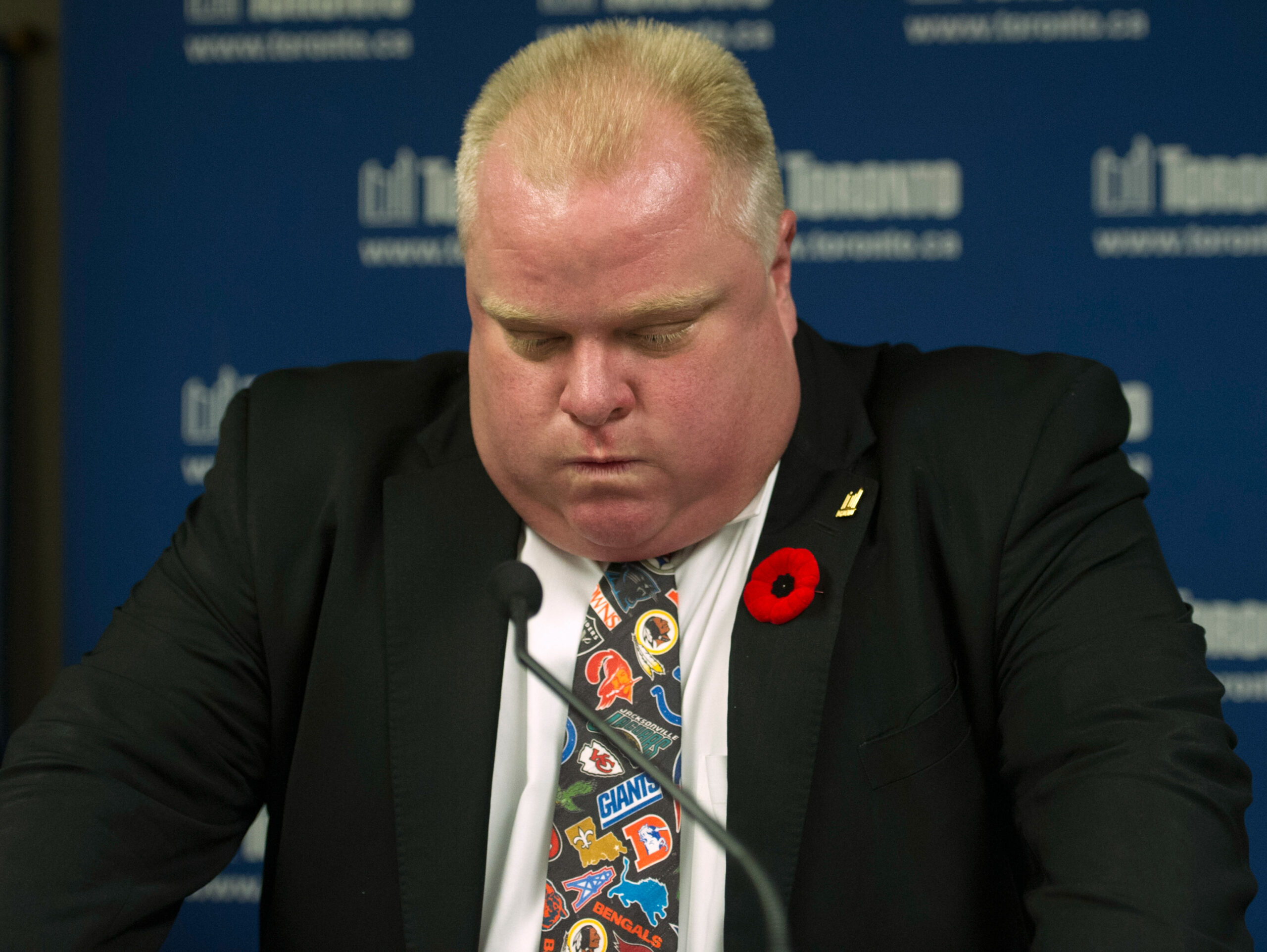The fate and fortunes of three politicians, two prominent and one who is only prominent through his actions, can serve as a lesson for any company worried about facing a crisis or simply wanting to protect its hard-earned reputation. How political figures prepare for and respond to challenges to their integrity can be quite instructive for commercial enterprises, and underpin the basic principles of crisis communications. It’s important to keep in mind that the scrutiny that public servants face is almost always far more intense than what a company faces, primarily because the media loves a political scandal and partly because issues affecting a company are often more complicated and thus harder to cover. Nevertheless, there are lessons to be learned.
The first political example is that of Toronto Mayor Rob Ford, an otherwise unknown local politician who succeeded in becoming an international figure because his behavior was so far out of the norm that he became his own train-wreck. Mayor Ford was caught on video smoking crack cocaine, has frequently been seen in drunken stupors, and had one video of him in an uncontrolled angry rage. Ford’s response has been defiance and excuses, ignoring the obvious and pretending that he has done nothing out of the ordinary. As a result, the City Council has stripped him of most of his authorities and has been pleading with him to resign. He may still have his position, but he has lost all authority and credibility.
The second is New Jersey Governor Chris Christie. His scandal is serious, intense, and could destroy his future political ambitions, but it’s not directly a result of his actions (this may change as new facts come out, but I take him at his word). Christie came out forcefully when it became known that his top advisers had precipitated a massive traffic jam on purpose to retaliate against the local mayor who had declined to endorse his reelection bid. In a lengthy press conference, he answered every question, denied any knowledge, fired the offending officials, but didn’t address the elephant in the room: Did he create an atmosphere among his administration that fostered this type of outrageous political retaliation, and if so, what would he do about it?
The third is President Obama who has faced a number of criticisms and potential scandals over the past year, ranging from the IRS targeting of conservative tax-exempt groups, to the troubled launch of HealthCare.gov, to the Benghazi embassy tragedy. There is no suggestion that the President had any responsibility or direct hand in any of these, yet they have contributed to his falling approval ratings. His answer to these events is to let investigations continue, allow his own feelings of outrage at each of these events to come out, and take a larger look at his top teams of advisors and bring in new players that can better help his administration cope with these types of issues.
Bluetext has three rules of crisis management that we believe are required of any organization or political leader if they are to weather the storm:
- 1. Show compassion. Understand that whatever you are facing, you can understand why someone would believe these to be serious issues that you are ultimately responsible for;
- 2. Show contrition. Recognize that you do have responsibility for what happens on your watch, regardless of your direct knowledge; and
- 3. Give a path forward. Explain what steps you are doing to resolve the issue, and more importantly that you are ensuring that it can’t happen again.
Mayor Ford fails on all accounts. He has shown no compassion, contrition or a hint of how he is going to avoid these types of instances in the future (such as the time-honored tradition of entering some sort of rehab program).
Governor Christie has tried to follow these rules, but has failed on one key point; taking responsibility directly for establishing a culture that would empower aides to take such actions. If at his press conference he had acknowledged that his administration may have set the wrong tone encouraging political payback, and had pledged to make changes to that type of culture, he might have avoided much of the criticism he has received.
President Obama’s challenge is far more difficult. He can’t get too involved in programs over which he has little control for fear of being mired in those activities and “owning” the crisis far more than he should. Showing the appropriate amount of concern, compassion, and acknowledging the wrongdoing through contrition are essential, and he has done that. His path to move forward is a little more difficult, and bringing in new personalities to his team is an insider’s play with little effect on his larger public audience. I would have liked to have seen a more public plan to make sure that his White House is on top of significant public policy programs.
For our clients, we recommend that they regularly assess their vulnerabilities before a crisis happens, and to practice responding to hypothetical threats to their reputation, incorporating our three rules into their operations. That makes facing a real communications crisis easier and more effective.


